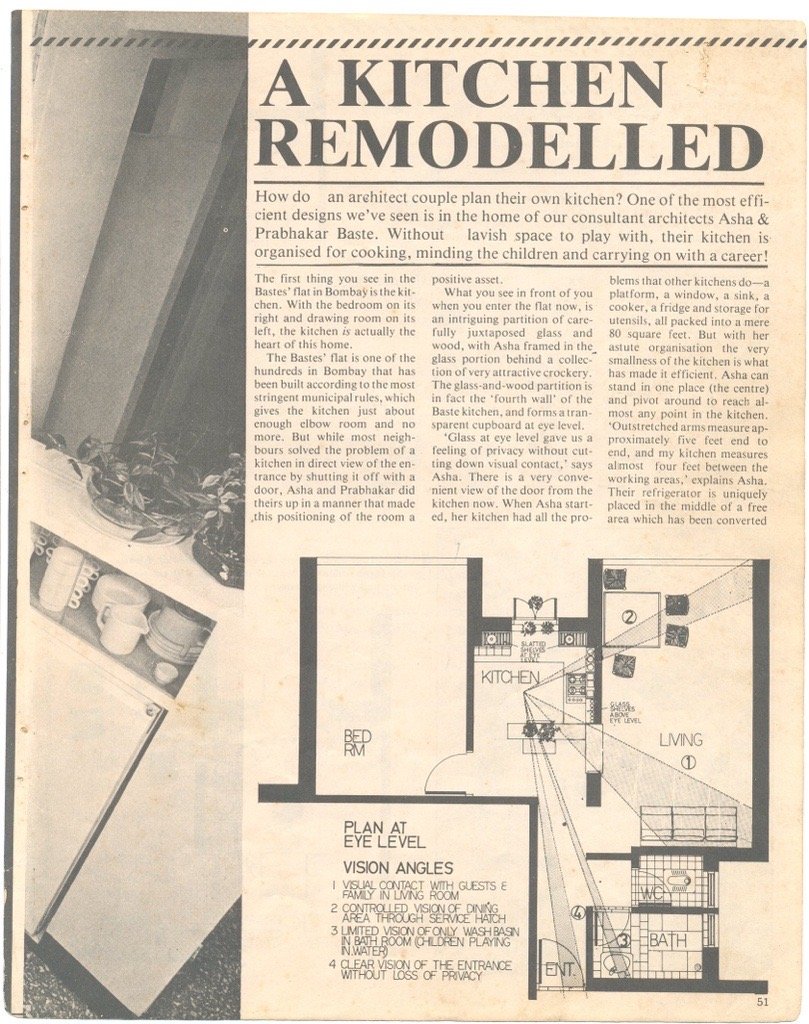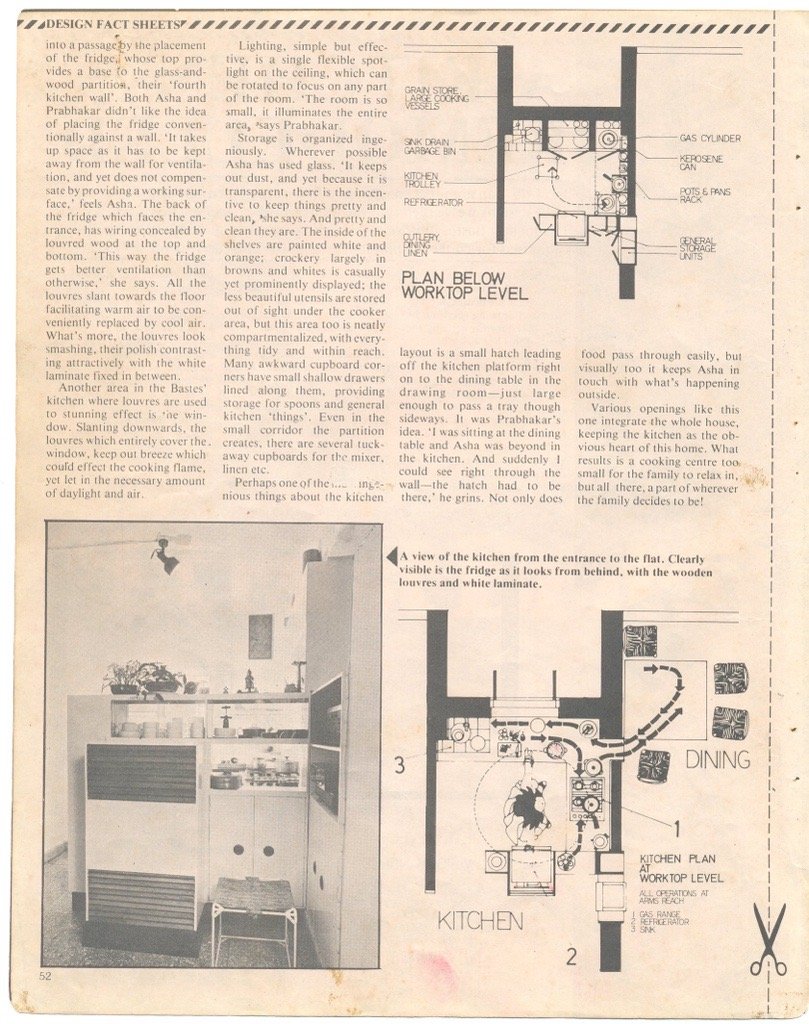Architect Bharat Baste is the life of the party and a man of many passions—from design to motorcycles to family. Here, meet the Co-Founder and COO of BBCO.
Q: What drew you to architecture?
A: Both of my parents were architects in Mumbai. They ran their firm together—just the two of them—designing custom homes. They worked from home, out of our living room. So I basically grew up in an architect’s office.
Q: Did they push you toward the profession?
A: They didn’t. They said, “Do what you want!” In sixth or seventh grade, I decided I wanted to be an aeronautical engineer and design aircraft. I discovered by seventh grade I didn’t like physics. So that was a bit of a problem [laughing]. But I liked science and designing things, so it made sense to join the family business. What’s funny is that my daughter, who is a student at Ohio State, just declared her major—and it’s physics [laughing].
Q: What do love you about the work now?
A: I like orchestrating a project to perfection—that is what I enjoy the most. I’m a really good strategy person and a really good project manager. I like to design elegant solutions to tangible problems and constraints.But organizing the company—being sure we deliver consistent quality every time and better ourselves each time we do it—that’s what really drives me.
Q: You and your wife, Bhakti Bania, co-founded BBCO. But she owns the majority of the company and is CEO. How did those early, company-forming conversations go?
A: It was a very simple conversation. I told her we could start a company if she leads it [laughing]. It was as simple as that.
Q: What do you most admire about her as a leader?
A: I admire her ability to be quick on her feet and to keep her cool in tough situations. She’s calm and collected, and she reacts to situations with grace and skill.
Q: What makes you most proud of the company you’ve built together?
A: We wanted to build an architecture firm where we produced high-quality work without burning people out. We wanted to make the experience a pleasant process for our clients. And we wanted to make sure we made it a welcoming place to work. I think we’ve achieved all of that—I hope we have. We’ve never prioritized profits over happiness, so that makes me proud. Despite this, due to our efficient workflow, we have always been profitable. We’ve stayed true to why we started the firm.
Q: You’ve designed hundreds of spaces around the world. What’s your favorite?
A: The King Avenue apartments. We did that project from 2013 to 2015, and it was very challenging. There was a lot of public engagement, and it was an extremely difficult building to design, because we had to stick within very tight zoning limits. We designed that thing down to the last square inch. It was, at the time, one of the first large-scale projects we orchestrated from start to finish. It would be a medium or even small project for us now, but it was large at the time. And we’ve received so many compliments.
Q: You have many passions beyond work—but none quite like your love for building custom motorcycles. How many have you built?
A: I just finished my sixth one yesterday. I’ve been working on it for 6 months.
Q: Why do they light you up?
A: I think the most appealing thing is probably the fact that it is a microcosm of the design process, of the building process. It’s ultimately about design. But ever since I was a kid, I’ve liked building things. I started building model cars and eventually renovated three homes. For me, I like the combination of being able to design something and then actually build it with my hands. Motorcycles bring an added dimension of excitement and freedom. And they can be dangerous, so there’s a technical challenge, and you need to be diligent. I do enjoy riding them, but I actually enjoy the process of creating them a lot more.
Q: Do you ever sell them?
A: Never! Well, my uncle was 18 when I was born. He took me out for my first motorcycle ride when I was 2 years old. He lives in Georgia now. He just retired and he was bored. And I had one motorcycle that I couldn’t get to, so I just shipped it to him and said, “It’s yours.” That wasn’t selling, though—that was giving!
Q: What’s your most prized bike?
A: Well, each one is different. The first one was a 1979 Honda CB750. I bought that in 2010, when we were just six months into starting the company. We didn’t have much money; I bought it for $750. It was really therapy for me. Over the last 13 years, I’ve rebuilt it three different times, based on the money I had available—the last time being the most expensive [laughing].
Q: And the best one?
A: The one I finished yesterday is the coolest and best looking one. It is a 1972 Triumph Bonneville. This is the motorcycle that Steve McQueen made famous—it’s been long-regarded as being the perfect embodiment of what a motorcycle should look like. I took a 70s bike and rebuilt it using parts from decades before its production date. So it looks like a combination of a bike from the late 40s to the mid-60s. It’s kind of a greatest hits of the Bonneville. So that was fun.
Q: Does Bhakti ride with you?
A: She did, back in India when we used to commute to work in our 20s. But once we had kids, we decided we shouldn’t both be on a motorcycle at the same time. Also we have a convertible now, so she enjoys that.
Q: You’re a car enthusiast, too. What do you drive?
A: I have a Porsche 911 Cabriolet and a Porsche Macan S.
Q: What else brings you joy?
A: My friends and family. I enjoy seeing our kids grow up; our daughter is 19, and our son is 15. That’s been very fulfilling for me personally—to be able to come to this country, and then give them the best opportunities they could have in terms of education and housing. That’s what’s really important to me. More than the motorcycles [laughing]. And we are lucky that we have a lot of very close friends from India as well as the U.S. Whether they’re friends from 35 years ago or six months ago, we absolutely love spending time with them.
Q: If you’re crafting your dream project, what is it?
A: Professionally, to me, it doesn’t matter what the project is. I enjoy working on all of them. But there’s one project I’ve actually dreamt of—building our own home. That’s been sort of churning in my head. We would really like to build a smaller house that feels like a large space—built sustainably, maybe net zero. I grew up in Mumbai in a 500-square-foot flat with my parents. My parents designed it to feel much larger visually and spatially. That’s how I grew up. I’d like to sort of do the same thing, but on a larger scale. Maybe even construct it myself. That’s my personal dream project.





